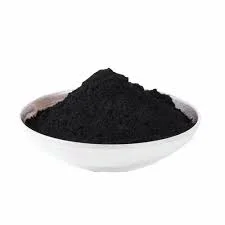Activated carbon powder, a versatile and essential material in various industries, has gained significant attention due to its remarkable adsorption properties. This blog article will delve into the diverse applications of activated carbon powder, highlighting its importance and effectiveness in different sectors.
Understanding Activated Carbon Powder
Activated carbon powder is derived from high-quality bituminous coal and anthracite through a series of production processes. These processes enhance its adsorption capacity by creating a vast network of pores on its surface. The result is a material with a large surface area, capable of adsorbing a wide range of contaminants and impurities.
One of the key advantages of activated carbon powder is its wide application range and adaptability. It is known for its strong decolorization ability, which allows it to transform products of different colors into a transparent state. Additionally, it operates effectively within a broad pH range, typically between 5 and 9, making it suitable for various chemical environments.

Applications in Water Treatment
One of the most prominent uses of activated carbon powder is in water treatment. It is widely employed to remove impurities and contaminants from water, ensuring its purity and safety for consumption and industrial use. The adsorption properties of activated carbon powder enable it to effectively eliminate organic compounds, such as chlorine, phenols, and other harmful substances that may be present in water.
In wastewater treatment, activated carbon powder plays a crucial role in the removal of pollutants. It is used to treat wastewater from industries such as printing, dyeing, and electroplating. These processes often result in water containing harmful substances like mercury, lead, arsenic, and cyanide. Activated carbon powder adsorbs these contaminants, thereby reducing their concentration and making the water safer for discharge or reuse.
Use in Air Purification
Beyond water treatment, activated carbon powder is also utilized in air purification systems. It is effective in adsorbing volatile organic compounds (VOCs), odors, and other airborne pollutants. This makes it an essential component in air filters used in homes, offices, and industrial facilities.
In waste incineration power plants, activated carbon powder is particularly useful for adsorbing dioxins, which are toxic byproducts of combustion processes. By incorporating activated carbon powder in the air filtration systems of these plants, the release of dioxins into the atmosphere can be significantly reduced, thus minimizing their environmental impact.
Decolorization in Chemical and Pharmaceutical Industries
Activated carbon powder is extensively used in the chemical and pharmaceutical industries for decolorization purposes. It is employed to remove color impurities from chemical raw materials and pharmaceutical intermediates, ensuring the purity and quality of the final products. For instance, it is commonly used in the decolorization of potassium iodide (KI), a critical step in the production of various pharmaceutical compounds.
The decolorization process involves the adsorption of color-causing impurities onto the surface of the activated carbon powder. This results in a clear and colorless product, which is essential for maintaining the aesthetic and functional properties of the final product.

Applications in Food and Beverage Industry
In the food and beverage industry, activated carbon powder is used for refining and purifying various products. It helps in removing impurities, odors, and unwanted flavors, thereby enhancing the quality and taste of the final products. For example, it is used in the purification of edible oils, where it adsorbs impurities and colorants, resulting in a clear and high-quality oil.
Moreover, activated carbon powder is also employed in the production of certain beverages, such as alcoholic drinks, to remove impurities and improve their taste and clarity. It is a vital component in the filtration systems of breweries and distilleries, ensuring the production of high-quality beverages.
Environmental and Industrial Applications
Activated carbon powder plays a significant role in environmental protection and industrial processes. It is used in the treatment of industrial emissions to remove harmful gases and particulates, thereby reducing environmental pollution. Additionally, it is employed in the recovery of precious metals from industrial waste, making it an economically viable solution for resource conservation.
In the power generation sector, activated carbon powder is used to control emissions from coal-fired power plants. It helps in the removal of sulfur dioxide (SO2) and nitrogen oxides (NOx), which are major contributors to air pollution. By incorporating activated carbon powder in the emission control systems, the environmental impact of power plants can be significantly reduced.

Conclusion
Activated carbon powder is a remarkable material with a wide range of applications across various industries. Its exceptional adsorption properties make it an invaluable tool in water and air purification, decolorization processes, and environmental protection. As industries continue to evolve and face increasing demands for sustainability and efficiency, the role of activated carbon powder is likely to expand further. Its versatility and effectiveness ensure that it remains a critical component in many industrial processes, contributing to cleaner and safer environments.

